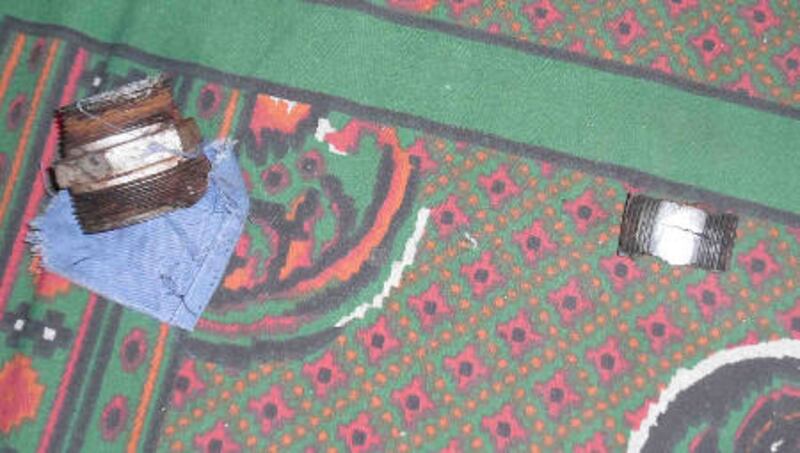A bomb exploded during prayers at an Ahmadiyya mosque in northwestern Bangladesh Friday, killing a suspected suicide bomber and injuring at least three devotees, police and witnesses said.
The explosion, the latest in a series of attacks on religious minorities in the South Asian country, took place after two strangers showed up for Friday worship, mosque caretaker Abdul Aziz told BenarNews by phone.
About 45 people had gathered for midday prayer at Mochmoil Syedpur Bokpara Ahmadiyya Jame Mosque in northwestern Rajshahi district, some 245 kilometers (152 miles) from Dhaka, according to Aziz.
“A huge explosion took place as we were in the middle of the prayer,” Aziz said.
One man died and at least three injured worshippers were rushed to the Rajshahi Medical College Hospital, including a 12-year-old child.
The dead man was one of two strangers who arrived early to offer prayers, according to Aziz.
“We know all the devotees coming to our mosque. As we asked them their identity, they replied that they came here to attend an invitation; they are students,” he said.
The other unknown person fled the scene as terrified worshippers poured out of mosque, leaving the suspected bomber in a pool of blood, Aziz said.
‘A sad incident’
The attack took place a day after police arrested seven members of the banned militant group Jamaat-ul-Mujahideen Bangladesh (JMB) in Dhaka.
Authorities said they seized a suicide-bomb vest, 16 homemade grenades and a huge quantity of explosives during the raid in an apartment building in the city’s Mirpur area that lasted 12 hours.
In Rajshahi on Friday, police allowed journalists to take pictures of the bomb (pictured) and the dead man, who was wearing blue jeans and a black jacket.

The identity of the attacker, who appeared to be in his early 20s, was not known, said Abul Kalam Azad, the officer-in-charge at Bagmara sub-district police station.
“Possibly, he was a brainwashed member of the JMB. This is very sad incident,” Azad told BenarNews.
Hardline Sunni Muslim groups, including the JMB, consider the Ahmadiyyas as non-Muslims. Attacks on the group were common between 2001 and 2006, but this is the first such attack since 2007, police said.
Ahmadiyya Muslims have been present in Bangladesh since the early 1900s. They acknowledge Indian-born Mirza Ghulam Ahmad (1839–1908) as a messiah foretold by the Prophet Mohammed.
In 2005, there were about 100,000 Ahmadiyya Muslims living in Bangladesh, according to a 2005 report by U.S.-based Human Rights Watch titled “Breach of Faith: Persecution of the Ahmadiyya Community in Bangladesh.”
Mosque attacks
Friday’s attack was the third in a mosque in Bangladesh in recent weeks, a Sunni-Muslim majority country with a secular constitution.
On December 18, Molotov cocktails were tossed at a Sunni Muslim mosque inside a naval base in the southern port city of Chittagong, injuring a half dozen people.
On November 26, militants sprayed bullets on devotees inside a mosque of the minority Shia Muslim community in the northern district of Bogra, killing a muezzin in his 70s.
Militant attacks this year have targeted intellectuals and foreigners as well as members of religious minorities.
In late September, Italian aid worker Cesare Tavella was gunned down in Dhaka’s diplomatic zone. Less than a week later, Japanese agriculture expert Kunio Hoshi was shot dead in the northern city of Rangpur.
In October, militants carried out a bomb attack on a procession of Shiites in Dhaka, killing two people.
Four secular bloggers and a publisher were brutally murdered this year in machete attacks by suspected militants. Four other people were injured in those attacks.
Two Christian priests have been attacked, and at least 30 other members of the tiny Christian minority have been threatened, church leaders say.
Two Hindu temples were bombed in Dinajpur district of northern Bangladesh in December.
The Middle East-based Islamic State group claimed responsibility for many of the attacks, but the government has denied their presence in Bangladesh, saying local militants such as JMB are using the IS brand to “add value to their names.”
